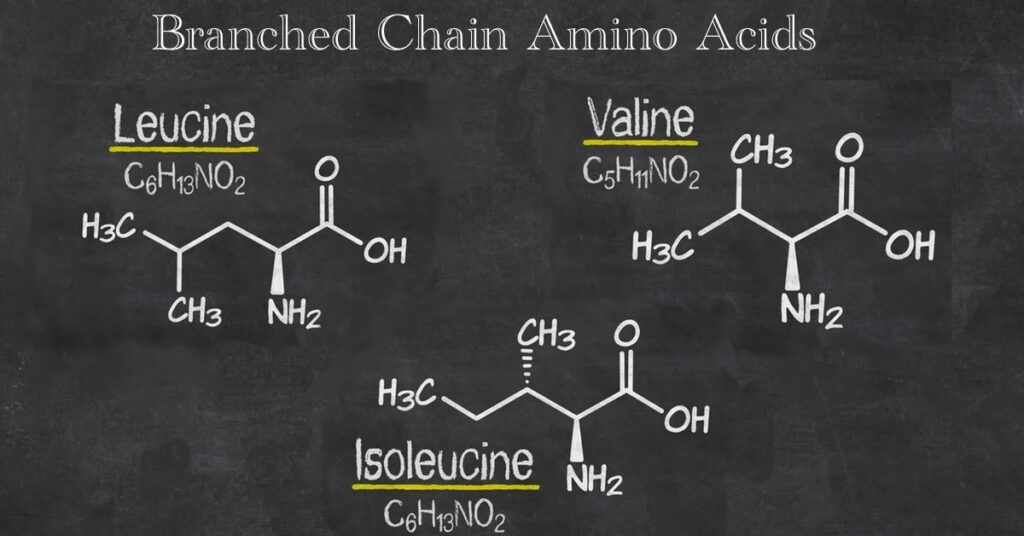The importance of amino acids
The topic of the importance of amino acids for muscle recovery (and muscle mass growth) after exercise is well studied. And we usually consume different amino acids together when we eat protein-rich foods — meat, fish, milk, cheese, eggs, nuts, beans, and so on.
But modern technologies allow the production of isolated amino acids.
Key neurotransmitters are synthesized from amino acids — for example, serotonin (its low level is considered one of the main factors in the development of depression) is formed from tryptophan.
Therefore, the use of individual amino acids can affect the brain and hormonal balance in a way that the use of a mixture of different amino acids will not affect. In the latter case, they will compete to overcome the blood-brain barrier, which will not significantly increase the level of a particular amino acid.
Can some amino acids in isolated form affect performance in sports, changing the ” brain chemistry” and hormonal balance? And what research is there on this topic?
Amino acids and affection on performance
Tyrosine
It is a precursor of dopamine and norepinephrine, and in theory, its consumption should have a positive effect on functioning under stress. But the results of studies with athletes are mixed.
In one case, cyclists in very hot conditions took 150 mg of tyrosine per kilogram of body weight 60 minutes before the test, and this improved the time “to failure”. The study’s authors concluded that tyrosine helped cyclists cope with the physical stress of heat and exercise; and reduced levels of tyrosine in the brain impair performance in sports in hot conditions.
And another study did not show an improvement in athletic performance, but there was an improvement in memory and information processing, so the author concludes: for those who are important for cognitive functions in difficult conditions, tyrosine can help. These are, for example, ultramarathoners, participants of adventure races, etc.
Another study in military personnel found no positive effects from the use of tyrosine before exercise.
Phenylalanine
Not so actively researched in the light of exercise. But there was something: it showed a significant effect on fat burning during exercises with submaximal intensity when taking 3 g of phenylalanine before them.
Although it can be useful at the beginning of the season for fat burning, this approach is not recommended when participating in competitions, when you need maximum results and the intensity is also maximum, and the availability of carbohydrates plays an important role.
Taurine
It is added to many drinks and is claimed to have an effect on focus and performance. But there is no convincing evidence. 6 grams of taurine did not help runners in one study improve their performance in high-intensity exercise, just as 1.7 grams did not help cyclists in another study.
A relatively recent review of seven studies showed little effect on performance in endurance sports. And there is no evidence about the effect of taurine on mood, cognitive function, or performance in sprints or high-intensity exercise.
Theanine
It is found in small amounts in tea. It has a positive effect on cognitive function, especially when combined with caffeine. It has been proven that 100-200 mg of theanine, coupled with 50-150 mg of caffeine:
– improve mood and cognitive function;
– promote the concentration of attention on external stimuli and reduce distraction;
– contribute to increased vigilance during the execution of task on attention.
Although further research is needed, there is already evidence that theanine with caffeine before exercise can be beneficial for athletes who need skills, attention, and concentration combined with physical effort.
General recommendations
Those who compete in challenging environments and who value cognitive function may benefit from taking tyrosine supplements. Phenylalanine may promote better fat burning during submaximal-intensity endurance exercises, but it definitely won’t help and can hurt during high-intensity exercise. Athletes in endurance sports may get small benefits from consuming taurine, but the evidence for its effectiveness is weak. Theanine in combination with caffeine can be useful for athletes who need concentration, visual processing, and motor skills — for example, during training, learning new movements and skills.
Read more: ALL YOU NEED TO KNOW ABOUT CREATINE

